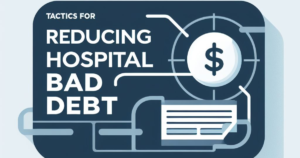Sharing is caring!

Losing one’s Medical Credentialing status can be a major setback for a Healthcare Provider. Medical Credentialing is the process of verifying that a Practitioner has met certain educational, experience, and other requirements to provide services within a particular health plan or hospital. Medical Credentialing also includes enrollment applications with government programs such as Medicare and Medicaid. Losing the Credentialing status means the loss of your right to practice medicine legally. In such a situation, you need to calm down and navigate your way with expert assistance to get your Credentialing status back.
Steps To Get Medical Credentialing Status Back
Contact the appropriate agency for help: First, contact the appropriate agency for help in understanding why your Credentialing was revoked or suspended. This may include contacting a Medical Credentialing department of a health plan or the Medical Staff Office of a hospital.
Develop an action plan: Next, develop an action plan to meet the Credentialing requirements. This may include obtaining additional education, experience, or other credentials required by a particular health plan or hospital. You will likely also need to complete an Enrollment application with government programs such as Medicare and Medicaid.
Submit your reapplication: Finally, submit your reapplication for Medical Credentialing. It is important to ensure that all of the required documents have been submitted to the Medical Credentialing department or Medical Staff Office. Once your application has been accepted, you will need to wait for confirmation that your Medical Credentialing status has been reinstated.
Consult a Credential Specialist for overcoming difficulties in the process
If you are having difficulty getting your Medical Credentialing status reinstated, consider consulting a Credentialing specialist who can help guide you through the process. A Credentialing specialist can review your documents and offer guidance, helping to ensure that you meet all Medical Credentialing requirements. With the help of a professional, you may be able to expedite the Medical Credentialing process and get back to work as soon as possible.
Overall, if you have lost your Medical Credentialing status, do not despair. There are steps you can take to get your Medical Credentialing reinstated and be back in practice. With a little effort, you can regain your Medical Credentialing status and start providing quality healthcare services once again.
But before you get back your status, there are some important things you need to keep in mind.
Things To Avoid While Re-claiming Medical Credentialing Status
Avoid incomplete applications: Incomplete applications can lead to issues in getting back your status, hence ensure to check with the Credentialing department that all the details are complete and accurate.
Avoid treating patients: Credentialing is mandatory before treating patients. A common mistake is thinking that submission of applications for Credentialing or Re-credentialing is enough. However, legally the hospitals are liable if physicians falsify their Credentialing status. There is a commonly cited negligent Credentialing case where a jury in Illinois ruled that $8 million should be paid as compensation to a patient whose foot had to be amputated after a doctor who wasn’t certified caused damage.
Avoid delay in Re-Credentialing: By law, healthcare professionals must renew their licenses and credentials every few years in a process called Re-Credentialing. The purpose of this is to double-check that physicians are properly certified and licensed to provide care. If hospitals don’t keep up with this, it could put patients in danger, increasing the risk for negative outcomes and resulting in an expensive lawsuit filed against the facility.
Avoid lack of proper disclosures in background checks: If a physician neglects to disclose an adverse action, it is a grave error. Examples of adverse actions that must be reported are revocation of license, exclusions from third-party programs, and suspensions or voluntary relinquishments of medical staff membership, clinical privileges, or state or federal DEA license. However, vetting for prior disciplinary action is something even healthcare organizations must take seriously. To ensure that only those with clean backgrounds work for healthcare organizations, thorough background checks from trusted sources must be completed. These checks should verify Credentials against databases of excluded, sanctioned, or barred individuals. If a physician omits anything from his or her application, the hospitals and health systems he or she is associated with will be held accountable.
With the tips above, you will be able to get your Credentialing status back. If you feel stuck, feel free to contact Credentialing experts at Apaana Healthcare.





